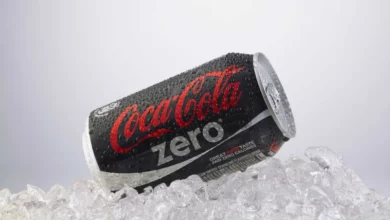Does White Tea Have Caffeine? Yes! Here’s How Much
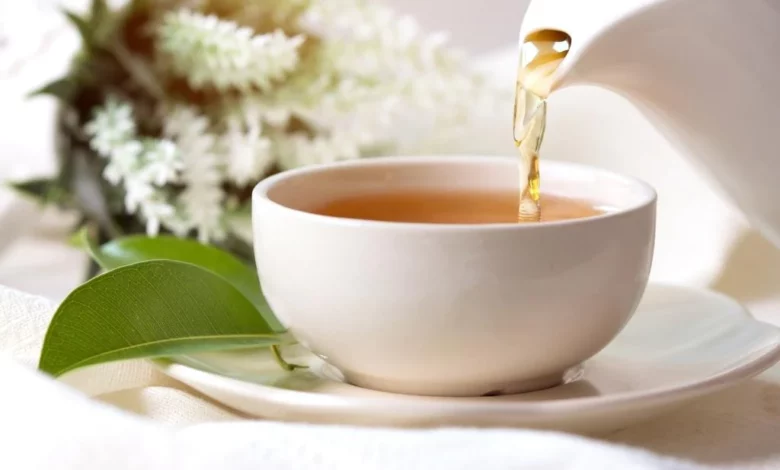
In this article, we will uncover the facts regarding white tea and its caffeine content. We will explore the differences between white tea and other types of tea, delving into factors such as harvesting processes, flavor profiles, nutrient composition, and potential health benefits.
We will analyze the distinct characteristics of silver needle, white peony, and other popular varieties of white tea, which yield varying levels of caffeine. We will also discuss the impact of processing, oxidation, and temperature on caffeine content, as well as examine the common misconception surrounding its lack of caffeine.
Finally, we will cover the unique features of L-theanine and its influence on these beverages. An in-depth examination of this deliciously calming beverage awaits us.
Short Summary – Does White Tea Have Caffeine?
- White tea is a variety of Camellia sinensis, with five distinct varieties, offering a variety of flavors and health benefits.
- White tea generally contains 15-30 milligrams of caffeine per 8-ounce cup, which is lower than the amount found in green tea.
- White tea is known for its antioxidant properties and has been linked to various health benefits, such as reducing inflammation and aiding weight management.
What is White Tea?
White tea is a variety of tea derived from the Camellia sinensis plant, renowned for its subtle flavor. It is harvested before the full expansion of the tea plant’s leaves, when the young buds are still enveloped by fine white hairs, thus earning it its name. Additionally, white tea is naturally low in caffeine and abundant in antioxidants.
White tea is harvested from two main subspecies of Camellia Sinensis.
- Camellia sinensis var. Assamica
- Camellia sinensis var.
These are two species of tea plants. Both of them are known for their unique aroma, flavour and taste. It is believed that white tea originated in either the 17th or 18th century, and it is still produced primarily in the Fujian province of China, the region from which it is believed to have originated.
White tea is available in both loose leaf and tea bag forms, with the latter being more convenient for brewing. The delicate silver needle tea is one of the most popular varieties of white tea, and it is made from only the finest buds of the tea plant. Other popular varieties of white tea include White Peony and late-harvest teas, which are harvested later in the season and contain more caffeine than the younger buds.
White tea is known for its light and delicate aroma and taste. It is brewed differently than other types of tea, as it requires the use of cooler water and longer steeping times. This results in a very light tea, with a milder flavor and lower caffeine content than other true teas such as green, black, and oolong.
White tea is a unique and delicate tea that has been enjoyed for centuries, and its production is still concentrated in the Fujian province of China. It is a healthier alternative to coffee, and its low caffeine content makes it an ideal drink for those seeking to reduce their caffeine intake. With its subtle and refreshing flavor, white tea is the perfect beverage for any occasion.
Types of White Tea

White tea is available in five distinct varieties: Yin Zhen Bai Hao (Silver Needle), Bai Mu Dan (White Peony), Gongmei (Tribute Eyebrow), Shou Mei (Noble, Long Life Eyebrow) and Fujian New Craft (DaBaiCha or DaHoaCha). Silver Needle is a white tea composed solely of pure buds, whereas White Peony Tea typically includes a few leaves, resulting in a darker brewed color and some greener flavor notes. Silver Needle Tea, on the other hand, is composed of only the buds of the tea plant, producing a lighter brewed color and a more delicate flavor.
White tea is a unique and delicate beverage that offers a variety of flavors and health benefits. It is a true tea, made from the Camellia sinensis tea plant, and is known for its mild flavor. The ideal temperature range for brewing white tea is between 140F (60C) and 203F (95C). Over-steeping can result in an unpleasant, bitter flavor, so it is important to be mindful of the time the tea is left to steep.
The five varieties of white tea also have distinct variations in their caffeine content. Silver Needle and White Peony are the most popular varieties of white tea and are often considered to possess the highest caffeine content. Other types of white tea, such as Shou Mei and Fujian New Craft, contain lower levels of caffeine. Thus, white tea can be a great choice for those who prefer a milder flavor with a lower caffeine content.
In addition to its subtle flavor, white tea also offers many health benefits. It is packed full of antioxidants, which can help reduce inflammation, promote relaxation and reduce stress. It also has been known to enhance mental alertness and has anti-aging properties.
For those looking for a more flavorful cup of white tea, there are floral or fruity infusions available. Additionally, the harvesting of the tea leaves can also impact the flavor. Shou Mei is typically harvested using slightly more mature buds from later in the harvesting season, if applicable, and primarily leaves. All of these factors should be taken into consideration when purchasing white tea.
White tea is a unique and delicate beverage that offers a variety of flavors and health benefits. Its light color, flavor, and low caffeine content make it a great choice for those looking for a milder taste and a healthier beverage option.
How is White Tea different from other teas?
White tea is a type of tea that is produced in the Fujian province of China.It is made from the buds and young leaves of the Camellia Sinensis plant. White tea is distinguished from other teas by its minimal processing, which results in a more delicate flavor and higher antioxidant content. Additionally, white tea is harvested earlier than other teas, when fine white hairs still cover the young buds.
Compared to green, black, oolong, and pu-erh teas, white tea is not oxidized, steamed, or rolled, meaning that it retains more naturally occurring polyphenols, antioxidants, and caffeine. White tea also has a very light flavor and aroma, making it a popular choice for those who prefer a milder taste.
White tea is a unique and delicate tea that has a variety of health benefits and a low caffeine content.
How is White tea processed?
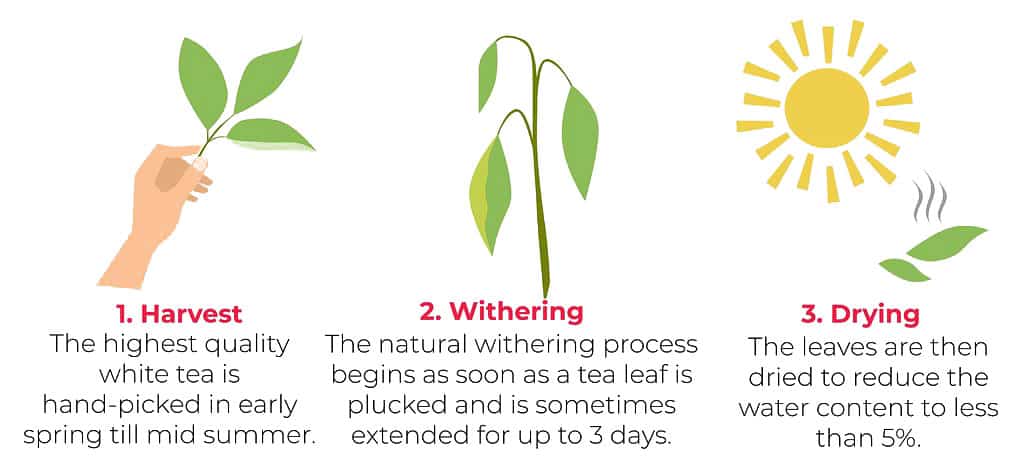
White tea is subject to minimal processing, which includes plucking, sun-withering, and drying. The leaves are allowed to wither and dry naturally in the sun or in a controlled environment. In some cases, the buds may be steamed or exposed to low heat in order to expedite the drying process and prevent oxidation. The amount of oxidation can affect the flavor, aroma, and caffeine content of a particular type of white tea. For instance, White Peony tea is processed without any oxidation, while other varieties may be lightly oxidized.
The amount of caffeine in white tea is affected by the processing method, as well as other factors. The young buds possess the greatest amount of caffeine, as well as the highest concentration of polyphenols and antioxidants. When processing white tea, the leaves are quickly withered and dried to halt oxidation. This process also facilitates the removal of caffeine from the leaves.
In order to brew white tea, loose leaf tea is recommended to ensure the best flavor and aroma. Due to the delicate nature of white tea, the leaves should not be crushed or bruised. For this reason, tea bags are not recommended for brewing white tea.
White tea is a unique and delicate tea that has a variety of health benefits and a low caffeine content. The region, temperature, altitude, climate, varietals of the Camellia Sinensis plant, harvesting, and processing techniques all have an effect on the flavor, aroma, and caffeine content of a particular type of white tea. Tribute Eyebrow is the least processed type of white tea composed mainly of leaves. White tea is composed of caffeine, polyphenols, L-theanine and tea flavors. The primary distinction between white tea and green, black, oolong, and pu-erh is that white tea is subjected to minimal oxidation, whereas the other varieties are exposed to a more prolonged oxidation process. White tea is withered and sun-dried in order to inhibit oxidation, while White Peony tea is processed without any oxidation. The amount of caffeine in white tea is affected by the processing method, as well as other factors.
Caffeine in White Tea
Caffeine is a stimulant found in many types of tea, including white tea.It is a naturally occurring substance that is known to possess both stimulatory and diuretic properties.
White tea, like other types of tea, contains caffeine, but in significantly reduced quantities compared to other varieties of tea. It is typically consumed in a manner that reduces its caffeine content, thus providing a less potent caffeine hit.
Amount of caffeine in white tea
White tea can contain anywhere from 6 to 75 milligrams of caffeine per cup, depending on the variety of white tea and the brewing techniques employed. Generally, white tea contains 15-30 milligrams of caffeine per 8-ounce cup, which is lower than the amount found in green tea, usually around 15 milligrams per 8-ounce cup.
White Tea made from the buds of the tea bush, which are known to be particularly rich in caffeine, is likely to contain the highest levels of the stimulant. White tea generally has 95-200 mg of caffeine. That is the average range.
Therefore, white tea is an excellent choice for those looking to reduce their caffeine intake due to its comparatively low caffeine content.
Factors affecting caffeine content
There are a variety of factors that influence the caffeine content of white tea. The type of tea buds and leaves, size, brand, brewing temperature, and steeping time all play a role in determining the amount of caffeine present in white tea. Loose-leaf white tea contains a lower amount of caffeine than white tea in tea bags, and steeping tea at 194°F (90°C) or lower is recommended for optimal reduction of caffeine content.
Nitrogen fertilizer and accelerated growing seasons can also influence the concentration of caffeine, as can the surface area of the tea leaves. By understanding these factors, it is possible to make an informed decision regarding the amount of caffeine present in white tea.
Comparison of caffeine content with other types of tea
White tea may not necessarily have a lower caffeine content than other teas, with the range of caffeine content varying from 5-55 mg. A cup of white tea contains approximately 40% less caffeine than a cup of coffee, and white tea typically contains less caffeine than other true teas such as black and oolong teas.
Green tea, for instance, contains 35 milligrams of caffeine per 8 ounces. Therefore, it is important to understand the caffeine content of different types of tea, including white tea, to make an informed decision when selecting a beverage.
Caffeine Content of Different White Teas
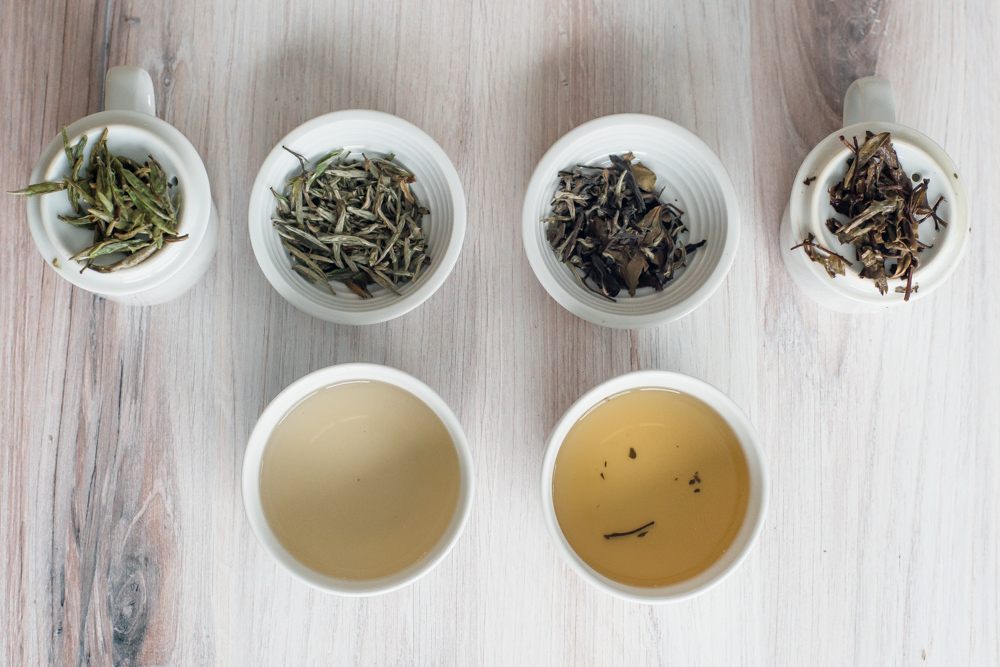
White tea is renowned for its low caffeine content, but the caffeine content of different white teas can vary significantly. The amount of caffeine in each type of tea is determined by the variety of the tea, the way in which it is processed, and the brewing method used.
For example, Silver Needle tea, one of the most widely consumed varieties of white tea, contains a higher concentration of caffeine than other white teas, such as Long Life Eyebrow and Shou Mei. Silver Needle is harvested from the buds of the tea plant, which gives it a distinctively sweet and delicate flavor. The caffeine content of an 8-ounce cup of Silver Needle tea is 47 mg, which is higher than that of black teas.
On the other hand, Long Life Eyebrow and Shou Mei contain less caffeine than other white teas. These teas are harvested from young tea leaves and are processed differently than other varieties of true teas. An 8-ounce cup of Shou Mei tea contains only 15-20mg of caffeine, while Long Life Eyebrow contains slightly more, at 25-30mg.
Brewing white tea also affects the caffeine content. Steeping your tea for longer periods of time will result in a stronger flavor and a higher caffeine content. It is important to keep the temperature of the water used to steep the tea below 175-180°F in order to preserve the integrity of the tea leaves and retain their delicate flavor.
Therefore, it is important to understand the caffeine content of different white teas in order to make an informed decision about which type of tea to drink. For those looking for a flavorful cup of tea with a low caffeine content, Shou Mei or Long Life Eyebrow may be the best choice. On the other hand, people looking for a higher caffeine content may opt for Silver Needle or White Peony tea.
Benefits of White Tea
White tea has many potential health benefits associated with it. This light, delicate flavor and aroma tea is known to be low in calories and high in antioxidants, making it a beneficial beverage choice. As an antioxidant-rich source of beneficial compounds and nutrients, white tea is an ideal choice for those wishing to preserve their health.
Additionally, it contains the beneficial compound L-theanine, which is known to reduce the jittery and crash effects associated with consuming beverages containing high amounts of caffeine. White tea also has anti-inflammatory, antimicrobial, and anti-ageing properties, making it a great choice for those aiming to maintain their health and well-being.
Antioxidant properties
White tea is renowned for its high antioxidant content, which is attributed to the presence of catechins and polyphenols, particularly (-) epigallocatechin gallate. These compounds are known to have anti-inflammatory properties and can be beneficial for skin health. White tea is rich in many essential vitamins and minerals. It contains Vitamin A, Vitamin B1 (thiamine), Vitamin C, zinc, manganese, fluoride, and calcium.
Additionally, white tea has been known to boost metabolism and reduce calorie absorption, which may contribute to weight loss. However, it should be noted that white tea is not specifically designed to reduce fat from the abdominal area.
White tea is also known to have beneficial effects on mental alertness. It has been suggested that regular intake of white and green tea may reduce the risk of heart disease, enhance cognitive functioning, and facilitate weight loss. Additionally, white tea is known to increase metabolism, reduce inflammation, and enhance digestion, all of which can contribute to healthy weight management.
Therefore, it is important to understand the amount of caffeine in white tea in order to make an informed decision about its consumption.
Promotes relaxation and reduces stress
White tea is known for its many health benefits, including its ability to promote relaxation and reduce stress. This is attributed to the presence of L-theanine, an amino acid derived from tea. L-theanine is known to reduce the jittery and crash effects associated with consuming beverages containing high amounts of caffeine. Additionally, white tea contains low levels of caffeine and has been known to possess health-enhancing properties. Therefore, it is an ideal choice for those looking to unwind after a hectic day.
The delicate flavor and aroma of white tea are also known to be beneficial for those who are not fond of the taste of traditional green teas. Silver Needle is one of the most expensive white tea leaves available and is composed of rare and fleeting early harvested buds. This, along with Long Life and Tribute Eyebrow, offers a slightly richer flavor profile than Delicate Silver Needle, though both remain quite light. Therefore, white tea provides a unique opportunity to de-stress and savour the moment while also offering a variety of beneficial compounds and nutrients.
Therefore, indulging in a cup of white tea can be a great way to unwind and enjoy the moment.
Enhances mental alertness
White tea has been known to have beneficial effects on mental alertness. It has been suggested that the regular intake of white and green tea may reduce the risk of heart disease, enhance cognitive functioning, and facilitate weight loss. Additionally, white tea is known to contain low levels of caffeine and a high concentration of beneficial compounds.
Therefore, it is important to understand the amount of caffeine in white tea in order to make an informed decision about its consumption. Much caffeine can result in a jittery and crash effect, while too little caffeine will not offer any energy boost.
Therefore, it is important to find the right balance when consuming white tea in order to reap the full benefits.
The Myth of Low Caffeine in White Tea
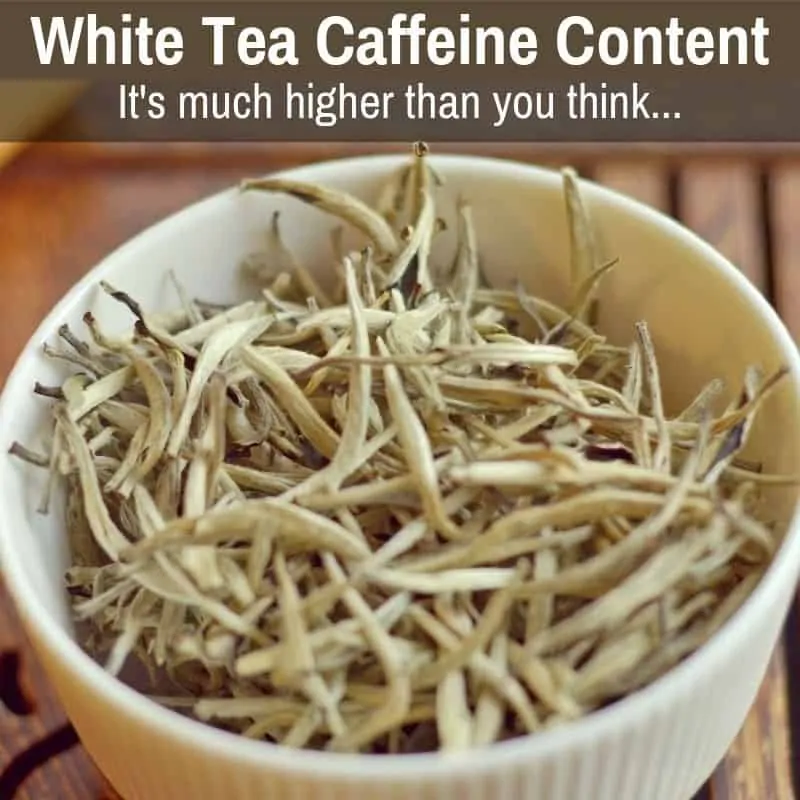
White tea has long been thought to have very low levels of caffeine, but is this true? It is widely believed that white tea contains virtually no caffeine, making it an ideal choice for those who wish to avoid the stimulant. However, this perception is false. While white tea does contain lower levels of caffeine compared to other true teas, such as black and oolong teas, it still contains caffeine.
The amount of caffeine present in white tea can fluctuate depending on the type of tea and the brewing technique employed. For example, young tea leaves, such as those used to make white teas, typically contain more caffeine than mature leaves used to make other types of tea. Additionally, loose-leaf white tea contains more caffeine than crushed tea leaves. Furthermore, brewing white tea for a longer period of time can increase the amount of caffeine extracted from the tea buds.
In comparison to other true teas such as black and green tea, white tea does contain less caffeine. For example, a cup of white tea typically contains 6-75 mg of caffeine, while a cup of black tea can contain 20-90 mg of caffeine, and a cup of green tea can contain 25-45 mg of caffeine. However, it is important to note that the caffeine content of coffee beans is higher than the caffeine content of all types of tea.
While white tea does contain less caffeine than other true teas, it is important to understand that it does contain caffeine and should not be assumed to be decaffeinated. Understanding the facts about caffeine in white tea can help you make informed decisions about your tea consumption.
Frequently Asked Questions
Does white tea have caffeine?
Yes, the answer is affirmative. Yet, white tea has a much lower caffeine content compared to other varieties of tea like black tea. This is because white tea is made from young buds and leaves of the Camellia sinensis plant that are grown in the Fujian province of China.
How much caffeine is in a cup of white tea?
This will depend on the specific type of white tea and the brewing method used, but generally, a cup of white tea contains between 6-60 mg of caffeine. Factors such as the age of the leaves, the steeping time, and the water temperature can also affect the amount of caffeine in a cup of white tea.
What are the benefits of drinking white tea?
White tea has numerous health benefits, including being rich in antioxidants and polyphenols that can reduce the risk of heart disease and cancer. It can also help promote healthy skin and hair, increase energy and alertness, and even assist in weight loss. Finally, white tea may also help reduce stress and promote relaxation.
White tea is a delicious and healthy beverage that can be enjoyed in moderation for its many health benefits. Even though it contains caffeine, the amount is much lower than other types of tea and can still be enjoyed without fear of excessive caffeine consumption.
Does white tea keep one awake?
Overall, it is safe to say that white tea does contain caffeine and can keep you awake if consumed shortly before going to bed. However, its effect is milder when compared to other caffeinated beverages. So it may still be possible to enjoy a cup of white tea at night without fearing keeping yourself awake.
Which has more caffeine coffee or tea?
Overall, coffee has more caffeine than tea. A typical 8-ounce cup of coffee contains around 95-200 milligrams of caffeine, whereas a cup of black tea typically contains 14-70 milligrams.
Green and white tea have lower amounts of caffeine, with 24-45 milligrams and 6-60 milligrams respectively.
Is white tea a stimulant?
Yes, white tea can be considered a mild stimulant because of its caffeine content. Its caffeine concentration is the lowest among all tea varieties, but certainly enough to provide a mild to moderate stimulation effect when consumed.
The effects of white tea are usually milder than those of other caffeine-containing beverages, such as coffee or energy drinks. This makes it a great choice for those who want to buy one.
Is white tea caffeinated or decaffeinated?
White tea is caffeine-free and contains 6-55 milligrams per cup of mouth. Whether it is caffeine-free or not depends on the product label and the production process.
Generally, experts recommend reducing the caffeine content in white tea by adding more water or shorter steeping times.
Ending Notes
In conclusion, white tea contains a lower amount of caffeine compared to other true teas such as black and oolong tea. What is more, it contains a number of beneficial properties that contribute to its health-promoting effects. Its harvesting process leaves it with a light aroma, delicate taste, and the presence of key antioxidants that affect inflammation, antimicrobial activity, and anti-aging processes.
Furthermore, this subtle yet comforting beverage has the ability to energize, promote relaxation, and enhance mental alertness when consumed in moderation. Overall, white tea stands out as a beneficial and versatile beverage, making it an ideal drink choice for those looking to reduce their daily caffeine intake but still reap the potential health benefits associated with it.
